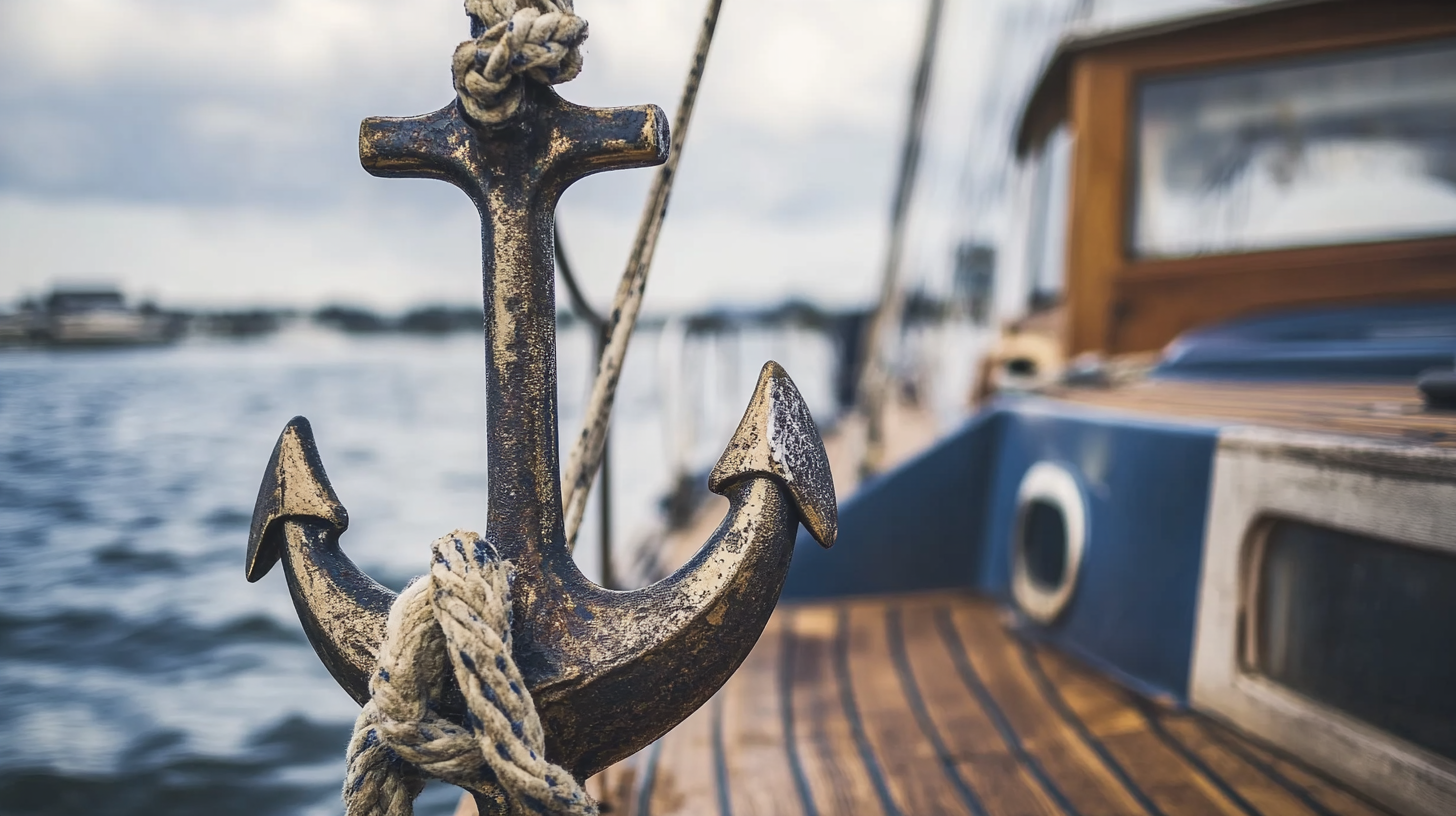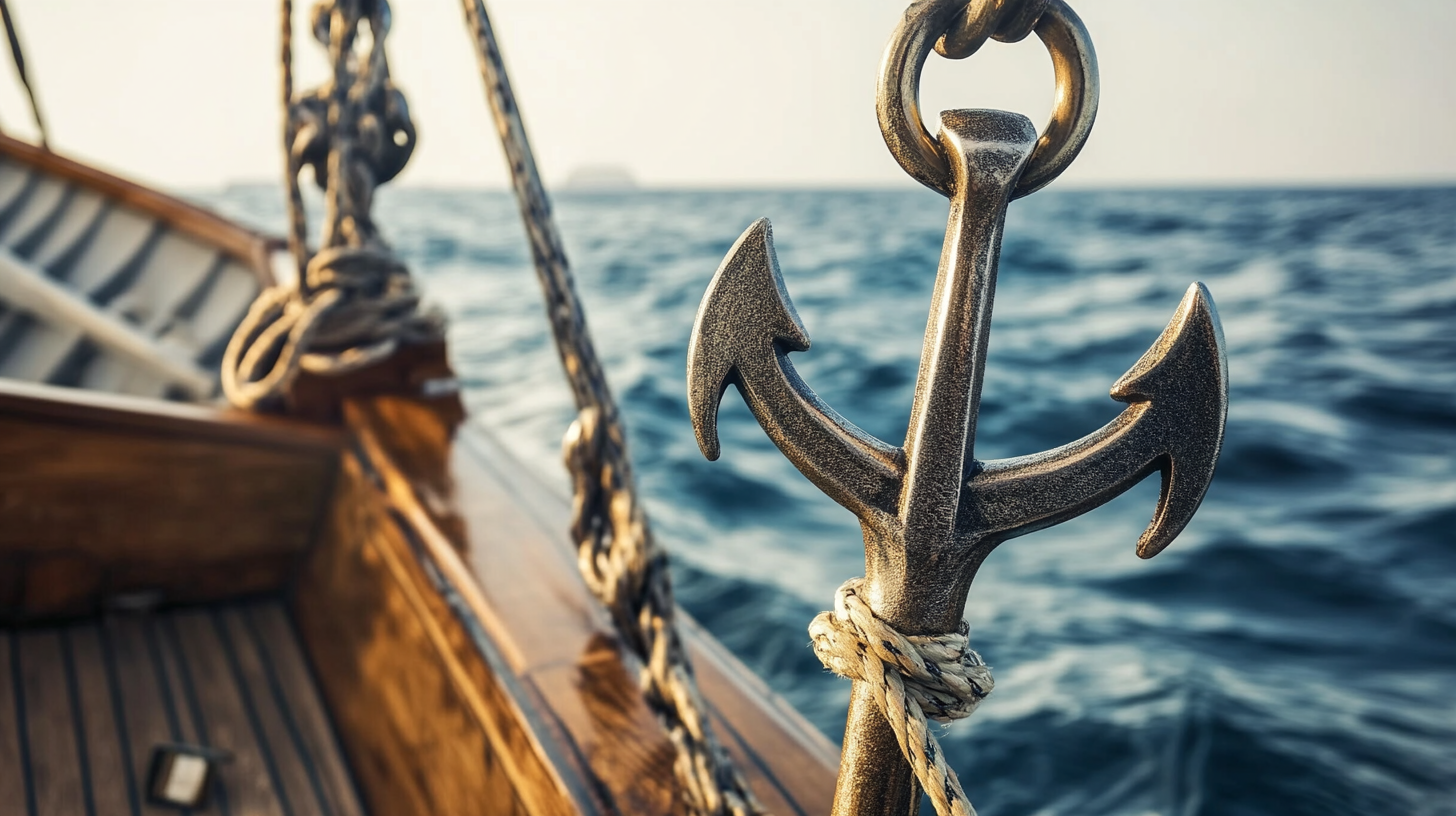
7 Essential Tips for Choosing the Best Marine Anchor for Your Boat
Choosing the right marine anchor is crucial for any boater looking to ensure safety and stability on the water. According to recent industry reports, over 40% of boaters encounter anchoring issues during their outings, often due to improper anchor selection. With the variety of anchors available, each designed for specific seabed conditions and boat sizes, understanding the unique characteristics of marine anchors becomes essential. The global market for marine anchors, projected to grow at a CAGR of 5.3% from 2021 to 2026, highlights the increasing demand for high-quality anchoring solutions. This underscores the importance of making informed decisions to enhance both performance and safety.

In this blog, we will delve into seven essential tips to assist you in selecting the best marine anchor for your boat, ensuring you are well-equipped for your adventures on the water.
How to Identify Quality Manufacturers for Marine Anchors
When selecting a marine anchor for your boat, identifying quality manufacturers is crucial. A reputable manufacturer will consistently prioritize the use of durable materials and innovative designs that enhance performance and reliability. Start by researching companies with established histories in the marine industry. Look for those that have been recognized by maritime organizations or have received positive reviews from experienced boaters. A manufacturer’s reputation can often be gauged through online forums and boating communities, where real-life experiences can provide insights into their products' effectiveness.
Additionally, consider manufacturers that offer a guarantee or warranty on their anchors. This is a clear indication that they stand behind their products and are confident in their construction. Pay attention to features such as corrosion resistance, weight options, and ease of use, as these can significantly affect the anchor's performance in different water conditions. Engaging with the manufacturer directly can also offer valuable information; a knowledgeable customer service team will assist in answering your questions and providing additional insights into product quality and functionality.
7 Essential Tips for Choosing the Best Marine Anchor for Your Boat
| Tip | Description | Material | Weight | Holding Power |
|---|---|---|---|---|
| Consider Anchor Type | Different types of anchors serve various purposes and conditions. | Galvanized Steel | 15 lbs | Up to 500 lbs |
| Evaluate Manufacturer Reputation | Choose brands known for quality and durability. | Stainless Steel | 20 lbs | Up to 600 lbs |
| Check Certification and Standards | Ensure the anchor meets industry standards like ISO. | Aluminum | 10 lbs | Up to 400 lbs |
| Select the Right Size | Ensure the anchor is appropriate for the size of your boat. | Polymer | 5 lbs | Up to 200 lbs |
| Look for User Reviews | Research customer feedback to gauge performance. | High-Strength Composite | 12 lbs | Up to 450 lbs |
| Assess Ease of Use | Choose anchors that are easy to deploy and retrieve. | Cast Iron | 25 lbs | Up to 700 lbs |
Understanding the Different Types of Marine Anchors Available
When it comes to selecting the best marine anchor for your boat, understanding the different types available is crucial. Anchors vary widely in design and functionality, with options such as fluke anchors, plow anchors, and mushroom anchors each serving unique purposes. Fluke anchors, for instance, are ideal for soft seabeds due to their ability to dig in deep, while plow anchors are versatile and can hold well in various conditions. It's essential to consider the specific environments in which you’ll be anchoring to make the most informed decision.

Recent advancements have also led to the development of new-generation anchors, which promise improved holding power and reduced environmental impact. As vessels increasingly face challenges like port congestion and the necessity for sustainable anchoring practices, upgrading to these modern products can enhance both safety and efficiency. For instance, the impact of anchoring on seagrass beds has prompted measures like voluntary no-anchor zones, emphasizing the need for responsible anchoring techniques. With so many options and innovations available, it's more important than ever to choose an anchor that not only suits your boat but also respects marine ecosystems.
Key Factors to Consider When Selecting an Anchor for Your Boat
Choosing the right anchor for your boat is crucial for ensuring safety and stability while at sea.
One of the key factors to consider is the type of seabed where you will primarily anchor. Different anchors perform better in varying conditions—fluke anchors excel in sand and mud, while plow anchors are ideal for a mix of substrates. Understanding the composition of the seabed in your usual anchoring spots will help you select an anchor that provides optimal holding power.
Another essential consideration is the weight of the anchor in relation to your boat’s size.
A general rule of thumb is to use one pound of anchor weight for every foot of boat length. However, this may vary depending on the nature of your sailing—if your boat tends to face stronger winds or currents, you may want to opt for a heavier anchor. Additionally, evaluating the anchor's material is important; galvanized steel offers durability, while stainless steel provides lightweight strength but may come at a higher cost. By taking these factors into account, you can choose an anchor that will best protect your vessel in various conditions.
The Importance of Anchor Weight and Size in Marine Safety
Choosing the right anchor for your boat is crucial not only for its efficiency but also for your marine safety. The weight and size of your anchor play a pivotal role in ensuring it can hold your vessel securely in various weather conditions. A heavier anchor generally provides greater holding power, especially in adverse situations. It is essential to consider the specific requirements of your boat type and the environments in which you plan to navigate. As noted in recent safety alerts from the Coast Guard, proper use of ship anchoring equipment is vital to prevent accidents.

When selecting an anchor, ensure that you invest in quality materials and designs that can withstand heavy weather. Reports indicate that many incidents occur due to inadequate anchoring systems failing to endure rough conditions. It’s wise to research modern anchor designs that are tailored for your boat’s specifications and local water conditions. Remember that a well-chosen anchor not only enhances your safety on the water but also contributes to overall boating enjoyment.
Reviewing Customer Feedback and Industry Ratings for Anchors
When selecting the best marine anchor for your boat, understanding customer feedback and industry ratings can significantly inform your decision. Many boaters share their experiences, highlighting performance during various weather conditions, the anchor's holding power, and ease of deployment. For instance, users commonly discuss how certain anchors perform in sandy versus rocky sea beds. By considering these insights, you can better gauge which anchor may suit your specific needs and sailing style.
Additionally, industry ratings provide a benchmark for comparing different anchor models. Various marine magazines and websites conduct rigorous testing, and the resulting ratings can be a valuable resource. Look for anchors that consistently receive high scores for reliability and functionality. Pay attention to reviews that mention long-term usage, as durability is key for anchoring safety. By synthesizing feedback from fellow boaters with expert evaluations, you can make a more informed choice and enhance your boating experience.
